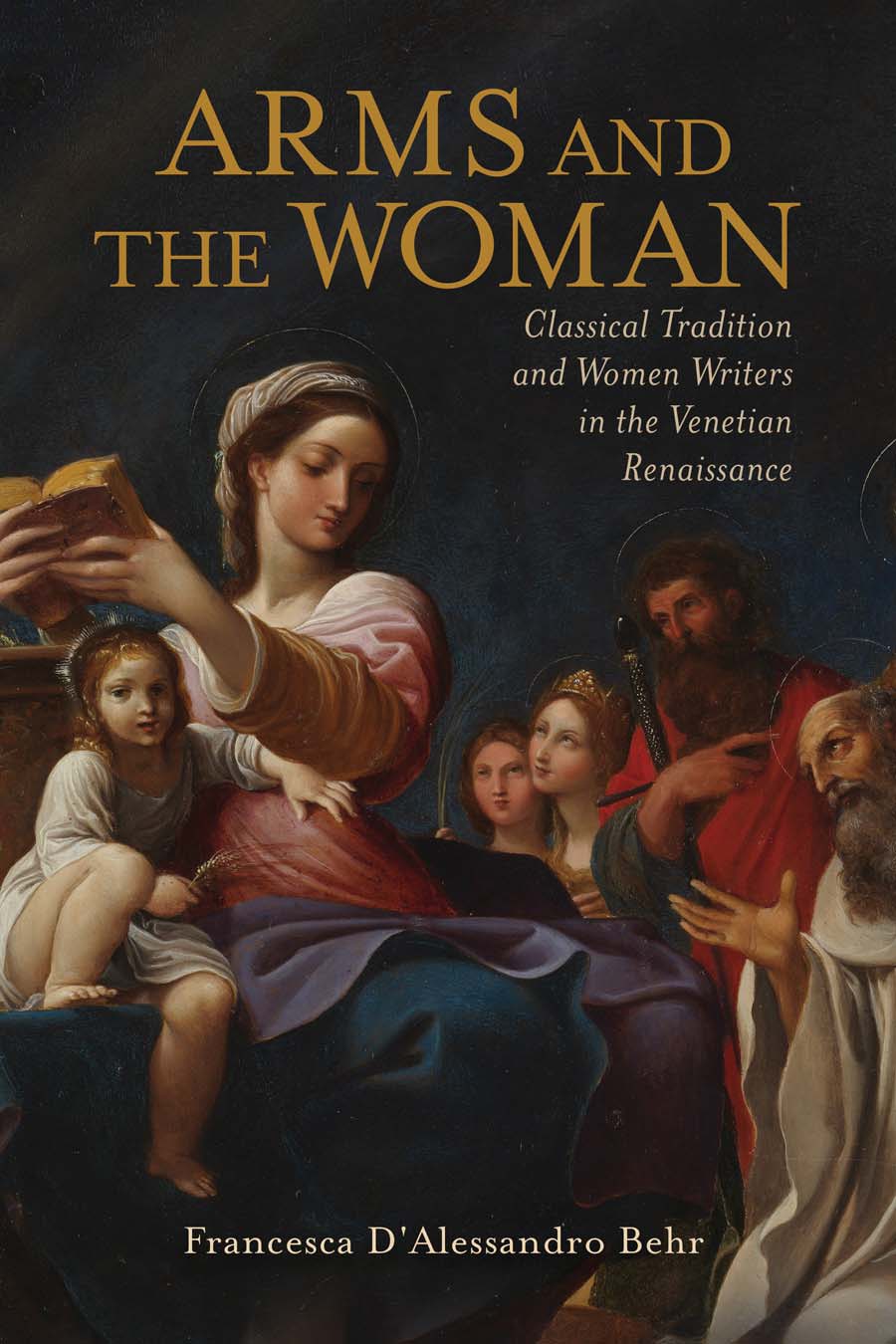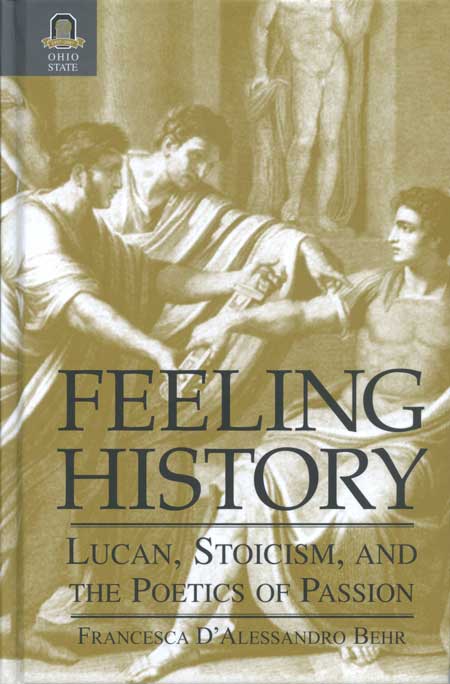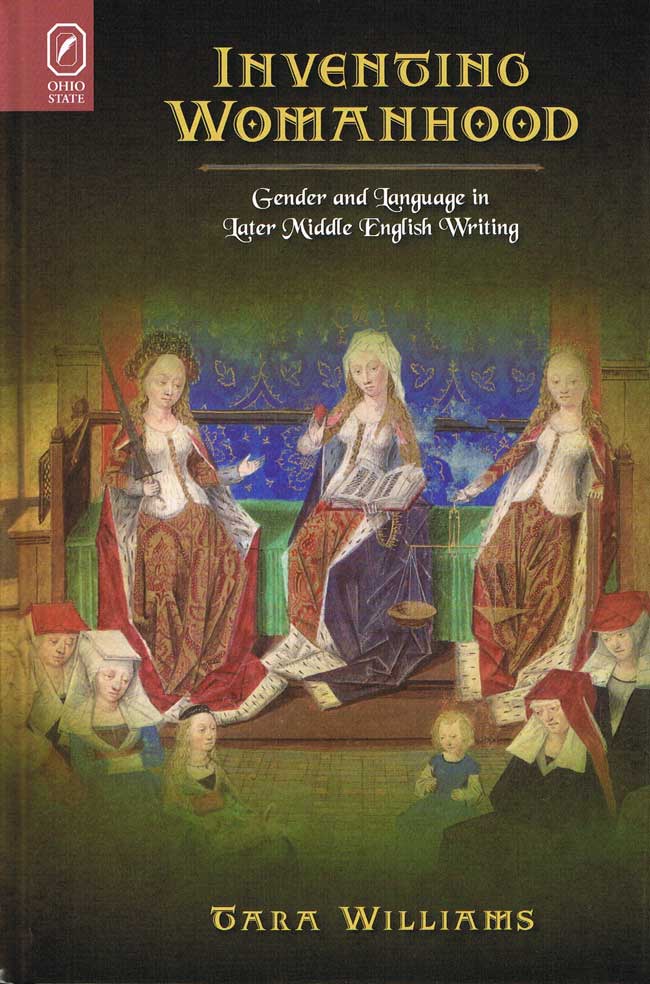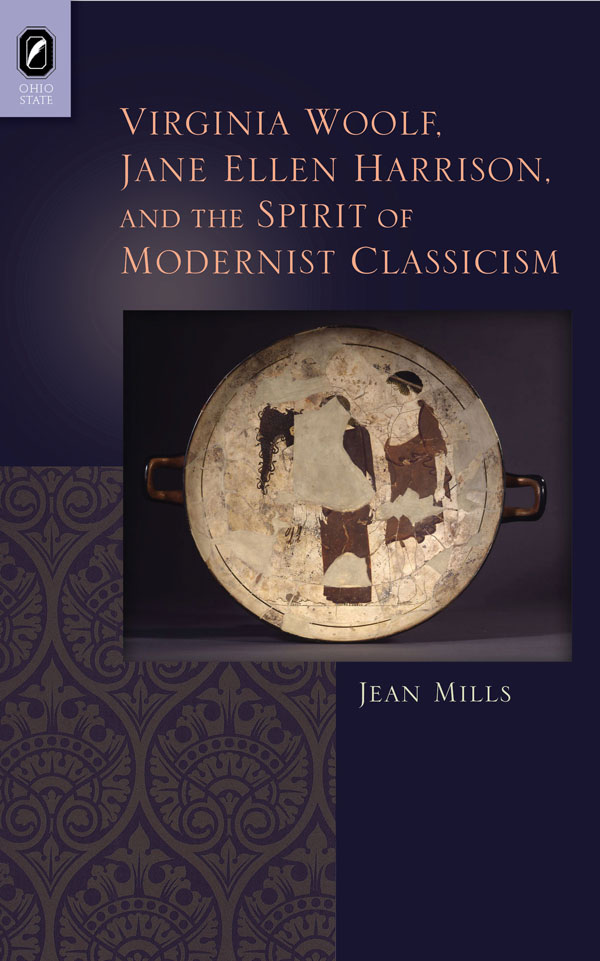“Francesca D’Alessandro Behr brilliantly contributes to the scholarship on Italian Renaissance [epics].…This book launches a new season for Italian gender and renaissance studies, with regard to women’s representation of and through violence and war, a season firmly rooted in the previous scholarship (e.g. Cox, Stoppino, Finucci, Ross), but one that contributes with both innovative thoughts and methodologies, and texts and figures that are still mostly understudied.” —Lucia Gemmani, gender/sexuality/italy
“Arms and the Woman is a very worthwhile addition to the literature on Fonte’s and Marinella’s epic poems, one that attests to their importance and to the significance of reception theory. It reveals the long-lasting impact of classical antiquity, and it casts crucial light on early modern texts.” —Maria Galli Stampino, author of Staging the Pastoral: Tasso’s Aminta and the Emergence of Modern Western Theater
Arms and the Woman: Classical Tradition and Women Writers in the Venetian Renaissance by Francesca D’Alessandro Behr focuses on the classical reception in the works of female authors active in Venice during the Early Modern Age. Even in this relatively liberal city, women had restricted access to education and were subject to deep-seated cultural prejudices, but those who read and wrote were able, in part, to overcome those limitations.
In this study, Behr explores the work of Moderata Fonte and Lucrezia Marinella and demonstrates how they used knowledge of texts by Virgil, Ovid, and Aristotle to systematically reanalyze the biased patterns apparent both in the romance epic genre and contemporary society. Whereas these classical texts were normally used to bolster the belief in female inferiority and the status quo, Fonte and Marinella used them to envision societies structured according to new, egalitarian ethics. Reflecting on the humanist representation of virtue, Fonte and Marinella insisted on the importance of peace, mercy, and education for women. These authors took up the theme of the equality of genders and participated in the Renaissance querelle des femmes, promoting women’s capabilities and nature.
Francesca D’Alessandro Behr is Associate Professor of Classics and Italian Studies at the University of Houston and author of Feeling History: Lucan, Stoicism, and the Poetics of Passion (OSU Press, 2007).
Contents
Acknowledgments
Introduction
Part I Female Fighters: On Women, War, and Pietas
Chapter 1 Lady Knights and Pietas
Chapter 2 Women and Compassion
Part II Lovers at War: Virgil, Ovid, and Resistance
Chapter 3 Epic and Elegy
Chapter 4 Love and Lamentation
Part III Women in the Garden: Enchantresses Erina and Circetta
Chapter 5 Ancient and Modern Prototypes
Chapter 6 Away from the City
Chapter 7 Fonte’s Enchantress and Beyond
Epilogue
Bibliography





